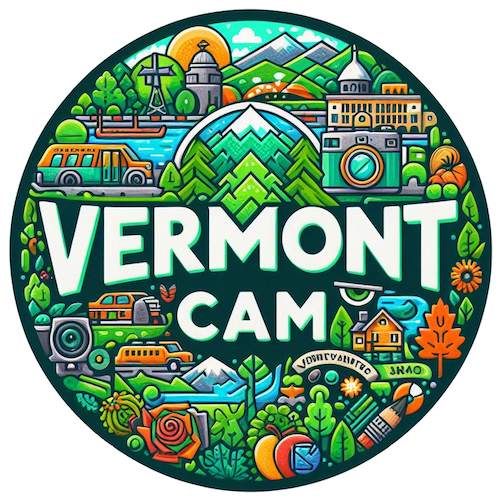Lyndon, VT Weather Cams
Lyndon, VT Weather Cams
The Green Mountain Gem: Lyndon, Vermont’s Journey Through Time
Lyndon, VT Weather Cams. Nestled in the picturesque Northeast Kingdom of Vermont, the town of Lyndon has a rich history spanning over two centuries. From its humble beginnings as a frontier settlement to its current status as a vibrant community and educational hub, Lyndon’s story is one of perseverance, growth, and adaptation.
The area that would become Lyndon was originally inhabited by Abenaki Native Americans, who lived off the land’s abundant natural resources. European settlers began to arrive in the mid-18th century, drawn by the fertile soil of the Passumpsic River Valley and the region’s dense forests.
In 1780, during the latter stages of the American Revolutionary War, the town of Lyndon was chartered. It was named after Josiah Lyndon, a former governor of Rhode Island who had purchased land rights in the area. The first permanent settler, Daniel Cahoon Jr., arrived in 1788 and began clearing land for farming. He was soon joined by other pioneers, many of whom were veterans of the Revolutionary War seeking a fresh start.
The early years of Lyndon’s settlement were marked by the challenges typical of frontier life. Settlers worked tirelessly to clear forests, build homes, and establish farms. The town’s first gristmill was constructed in 1789, providing a crucial service for the growing community. By 1791, when Vermont gained statehood, Lyndon had a population of 59.
As the 19th century dawned, Lyndon began to develop rapidly. The town’s first school was established in 1804, reflecting the settlers’ commitment to education. Churches soon followed, with the Congregational Church being organized in 1817. The town’s economy diversified beyond agriculture, with sawmills, tanneries, and small manufacturing operations taking root.
Transportation played a crucial role in Lyndon’s growth. The Passumpsic Turnpike, completed in 1808, connected the town to southern markets and facilitated trade. This was further enhanced by the arrival of the railroad in 1856, which brought new opportunities for commerce and industry.
The mid-19th century saw Lyndon emerge as a center of education in the region. In 1829, the Lyndon Academy was founded, offering advanced studies to local youth. This institution would evolve over time, eventually becoming Lyndon Institute in 1867, a prestigious private secondary school that continues to operate today.
During the Civil War, Lyndon, like many Vermont towns, contributed significantly to the Union cause. Over 140 men from the town served in the conflict, with many joining the 3rd Vermont Infantry Regiment. The war’s impact on the community was profound, both in terms of lives lost and the social changes it brought about.
The late 19th and early 20th centuries were a period of industrial growth for Lyndon. The Lyndonville Creamery Cooperative, established in 1893, became a major employer and helped solidify the town’s reputation for dairy production. Other industries, including furniture manufacturing and tool-making, also flourished during this time.
In 1911, Lyndon State Normal School was founded to train teachers for Vermont’s rural schools. This institution would grow and evolve over the decades, eventually becoming Lyndon State College in 1961 and later merging with Johnson State College to form Northern Vermont University in 2018.
The Great Depression hit Lyndon hard, as it did much of rural America. However, the town’s diverse economy and strong sense of community helped it weather the storm. New Deal programs, such as the Civilian Conservation Corps, provided employment and infrastructure improvements in the area.
World War II saw Lyndon’s residents once again answering the call to service. The town’s industries contributed to the war effort, with many local businesses shifting production to support military needs. The post-war years brought prosperity and growth, as returning veterans started families and new businesses.
The latter half of the 20th century brought significant changes to Lyndon. The completion of Interstate 91 in the 1970s improved access to the town, boosting tourism and commerce. At the same time, traditional industries faced challenges, forcing the community to adapt and diversify its economy.
Education continued to play a central role in Lyndon’s development. The presence of Lyndon Institute and Lyndon State College (now Northern Vermont University-Lyndon) attracted students from across the region and beyond, enriching the town’s cultural life and providing economic stability.
In recent decades, Lyndon has embraced its natural beauty and outdoor recreational opportunities. The Kingdom Trails network, established in the 1990s, has made the town a popular destination for mountain biking and other outdoor activities. This has helped to offset the decline in traditional industries and brought new vitality to the local economy.
Today, Lyndon stands as a testament to the enduring spirit of rural Vermont. With a population of around 5,900, it maintains a small-town charm while offering amenities and opportunities typically found in larger communities. The town’s historic downtown, with its mix of 19th-century architecture and modern businesses, reflects the blend of tradition and progress that has characterized Lyndon throughout its history.
As Lyndon moves forward in the 21st century, it faces both challenges and opportunities. The ongoing evolution of its educational institutions, the need to balance economic development with environmental preservation, and the desire to attract and retain young residents are all issues at the forefront of local discourse.
Yet, as it has done for over two centuries, Lyndon continues to adapt and thrive. Its rich history, strong sense of community, and beautiful natural setting provide a solid foundation for the future. From its origins as a frontier settlement to its current status as a dynamic small town, Lyndon, Vermont, remains a shining example of the resilience and character that define the Green Mountain State.
For more information, visit the official Lyndon, Vermont website.
